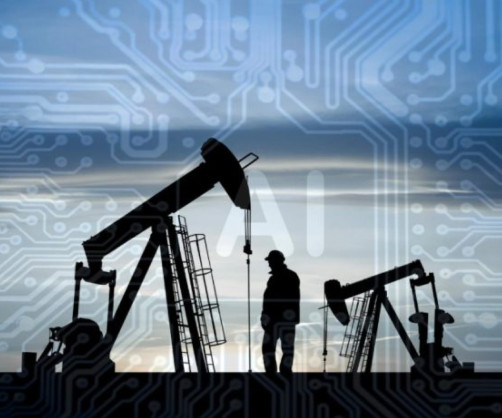Harnessing Artificial Intelligence (AI) to Make Energy Poverty History: African Energy Week (AEW) 2025 to Explore Role of Digitization and Data

With over 600 million people living without access to electricity and 900 million living without access to clean cooking solutions, Africa is faced with a dilemma: how to scale-up energy capacity while reducing project timelines. Artificial Intelligence (AI) and collaboration with global partners have emerged as key solutions to addressing this dilemma, offering energy producers the chance to modernize infrastructure, accelerate energy development and create more resilient energy systems across the continent.
A panel discussion at the African Energy Week (AEW): Invest in African Energies conference – taking place September 29 to October 3, 2025 – will explore the impact AI solutions are playing in Africa. The session will delve into challenges faced by African countries, including data gaps, limited local expertise and regulatory barriers, while offering insights into how context-aware AI can make technology affordable and accessible. Participating speakers include representatives from S&P Global Commodity Insights and Microsoft Energy and Resources. The conversation will explore how technology can bridge the energy divide – paving the way for a more energy-secure, innovation-driven Africa.
AEW: Invest in African Energies is the platform of choice for project operators, financiers, technology providers and government, and has emerged as the official place to sign deals in African energy. Visit www.AECWeek.com for more information about this exciting event.
With the demand for electricity projected to more than triple in Africa by 2040, AI stands to play an instrumental role in optimizing energy production. Across traditional grid networks, AI can be leveraged to enhance the efficiency of energy systems, improve resource management while minimizing energy losses. AI also enables predictive maintenance, allowing utilities to identify equipment failures ahead of time. In addition to preventing unwarranted shutdowns, predictive maintenance significantly reduces costs. The Kenya Power and Lighting Company, for example, is utilizing AI-powered solutions and machine learning to detect power theft, optimize load distribution and manage power outages. This has resulted in a 30% reduction in energy losses. In June 2025, the company launched an Expression of Interest, inviting international firms to partner on the implementation of world-class IT solutions to further improve grid management, technology infrastructure and digitization. In South Africa, the state-utility Eskom is leveraging AI to monitor the national grid. Through the application of big data and AI in energy management, the utility seeks to optimize systems and cut unnecessary electricity use.
Beyond grid management, AI is being utilized to expand energy access. Approximately 33% of Africa’s population lives in rural or remote areas, and with the continent relying heavily on traditional grid systems, this has resulted in significant disparity with regards to equitable energy access. Through AI, Africa stands to address this challenge. AI-powered microgrids, for example, are playing a major part in providing access to electricity for underserved communities. Offering an alternative to grid-connected power, microgrids are context-specific, allowing access to power without the need for large-scale transmission networks. Recent projects highlight a growing commitment by international firms to expand microgrids in Africa. The Zambia Ruida Mining Microgrid Power Project was commissioned in 2025, representing the continent’s largest single-unit microgrid for mining operations. SANY Silicon Energy launched Africa’s largest single-unit hybrid microgrid for mining projects in South Africa in 2025, while PowerGen Renewable Energy is partnering with international investors to deploy over 120 MW of off-grid energy systems across the continent.
Meanwhile, AI creates significant opportunities to propel a just energy transition in Africa, supporting renewable energy integration across grid networks. Through the deployment of smart grids and AI technology, utilities can balance fossil fuel generation with renewable integration, allowing African countries to utilize a variety of generation sources. Countries like Zimbabwe are actively integrating renewable energy into the national grid, seeking to diversify its power mix by incorporating both coal and renewable energy. Approximately 75MW of net-metered solar was added to the grid in February 2025, with goals to incorporate 2,100 MW of renewable energy by 2030. AI-powered technology and smart meters enable seamless integration, while addressing challenges associated with renewable energy intermittency. Stepping into this picture, the AEW: Invest in African Energies 2025 panel discussion will bring together experts to discuss the opportunities and challenges for AI deployment in African energy.
“Addressing energy poverty in Africa requires innovative solutions. AI is not a foreign concept: it’s a powerful local opportunity. By building AI tools that are rooted in African data, culture and needs, we can create a smarter energy ecosystem that works for all Africans,” NJ Ayuk, Executive Chairman, African Energy Chamber.
Distributed by APO Group on behalf of African Energy Chamber.



